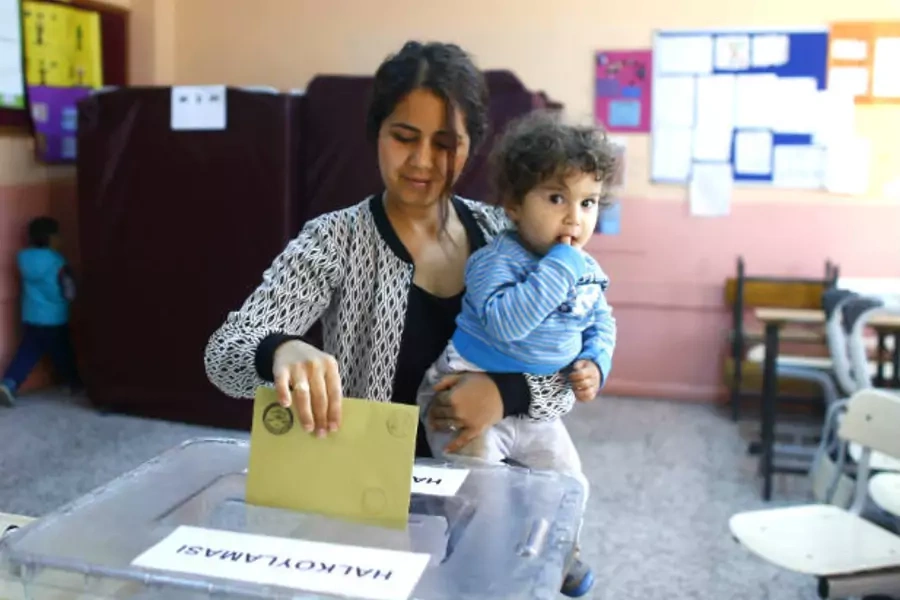More on:
Welcome to “Women Around the World: This Week,” a series that highlights noteworthy news related to women and U.S. foreign policy. This week’s post, covering from April 15 to April 24, was compiled with support from Becky Allen, Anne Connell, and Loren Grier.
Turkey’s referendum and women’s rights
Many civil society groups and opposition politicians in Turkey fear a reversal on civil rights and women’s rights after Turkey’s referendum passed in a narrow victory. The referendum eliminates the post of prime minister and increases the authority of the president, enabling current President Recep Tayyip Erdogan to consolidate power. Leading opposition candidates, including Meral Aksener— formerly Turkey’s first female interior minister—decried the move as a threat to the country’s democratic institutions. The referendum follows prior steps by the Erdogan regime to limit civil society activity and restrict women’s rights in recent years: in 2014, Erdogan publicly declared that men and women are not equal by birth, and in 2016 his Justice and Development Party (AKP) attempted to pass a law that would exonerate rapists who married their victims.
Afghanistan combats child marriage
Afghan First Lady Rula Ghani called for an end to child marriage last week and launched the country’s first-ever National Action Plan to Eliminate Early Child Marriage. Child marriage is widely practiced in Afghanistan, with 33 percent of Afghani girls married by age 18, and a legal age of marriage at 15 with paternal consent. The new national action plan was developed in partnership with Afghanistan’s Ministry of Women’s Affairs, the Ministry of Information and Culture, the Embassy of Canada, and the UN Population Fund, and articulates initiatives aimed at preventing child marriage and strategies to improve the implementation of existing laws. Citing evidence that girls married as children are twice as likely to die of complications related to childbirth compared to women in their twenties, First Lady Rula Ghani asserted that "it is a national responsibility to stop the menace [of child marriage]."
UN peacekeepers to withdraw from Haiti
The UN Security Council voted last week to end its peacekeeping mission in Haiti, deeming the country stable enough for troop removal to occur in October. The United Nations Mission in Haiti—known as MINUSTAH—began in 2004 when the UN Security Council authorized the deployment of a 20,000-strong multinational force to facilitate the return of Haitian authorities and promote the rule of law. However, the peacekeeping force faced allegations of introducing cholera to the country and committing sexual violence against Haitian civilians with impunity. A recent report reveals over 2,000 allegations of sexual abuse of women and children by peacekeepers from Bangladesh, Brazil, Jordan, Nigeria, Pakistan, Uruguay, and Sri Lanka. Following a UN investigation in 2007, 114 Sri Lankan peacekeepers were sent home, but none faced legal action in their home country, which retains legal jurisdiction on the issue. U.S. Ambassador to the UN Nikki Haley stressed that troop-providing countries need to hold troops accountable for their actions, telling the UN Security Council that “we owe it to the vulnerable in these countries who desperately need peace and security.”
More on:
 Online Store
Online Store
